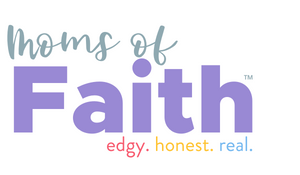Managing Food Allergies in Children
Children who have food allergies may not understand why they can’t eat peanut butter like their friends, or why they react so badly to milk or wheat. As a parent, you want to know how to manage children with food allergies so you can help them have a long, healthy and happy life.
Food allergies are more common than you might think. However, they may not be as severe in some children as they are in others. Thankfully, some children who have food allergies while they are very young can often outgrow them by the time they are five years old.
It is important to understand food allergies and recognize the symptoms. With an allergy, the body sees the allergen as dangerous and will start attacking the food or its components with antibodies. Food allergies have the potential to be life threatening so you’ll want to take them seriously. The antibodies cause irritation which can manifest as these symptoms:
* Swelling of the lips
* Difficulty breathing
* Tingling in the mouth – lips or tongue
* Hives
* Itchy rash
* Abdominal cramps
* Diarrhea
* Vomiting
Prevention is the best way to help your children manage their food allergies. Keep your child from having access to foods containing their allergen. Learn to be diligent in reading food labels each and every time you go shopping, as foods may change without notice. Teaching your child to read labels will train them to do this once they get older.
Teach your child to recognize the food they’re allergic to. This might mean doing some research to find out what food items might contain their particular allergen. You’ll need to learn how to properly read food labels and if there are allergens listed it would be wise to avoid purchasing those foods.
Explain to you child the importance of not exchanging food with their friends. Even though their friends’ lunch may look good, there’s no guarantee there aren’t allergens in it. It is best that they eat only the food you prepare or purchase for them. Be aware when eating out that even though some foods aren’t on your child’s allergen list, there could be cross-contamination with foods that are.
Inform your school’s cafeteria and teacher of their food allergy. Talk with your child’s doctor about keeping medicine with them just in case they have an allergic reaction while at school. Your child’s teacher and front office should have contact information for you and your child’s doctor in case of an emergency.
Having to manage children with food allergies can be stressful, but it doesn’t have to be impossible. With knowledge of your child’s allergens, you will be able to learn along with your child which foods are acceptable and those that aren’t.
With the pediatrician’s help you will also know how to treat your child should they have an allergic reaction. Finally, you’ll be able to let others know of your child’s needs and know that they can react quickly should it be necessary.

The best it would be to eat only raw and healthy foods, but is quite impossible nowadays.